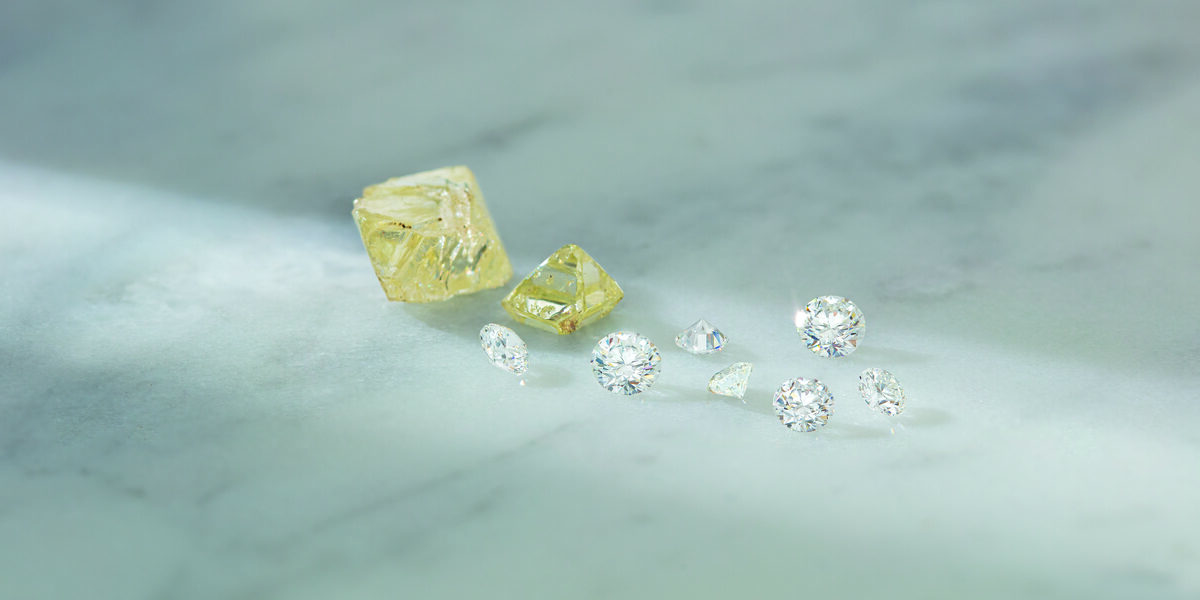In a world where sustainability and ethics increasingly guide consumer choices, the diamond industry is undergoing a significant transformation. One shining example of this change is the rise of ethical lab diamonds. But what exactly are they, and why should you consider them for your next jewelry purchase?
Introduction to Ethical Lab Diamonds
What are lab diamonds?
Lab diamonds, also known as synthetic or cultured diamonds, are created in controlled laboratory environments rather than mined from the earth. They possess the same chemical composition, crystal structure, and physical properties as natural diamonds, making them indistinguishable to the naked eye.
Why ethical lab diamonds matter?
Ethical lab diamonds offer a sustainable and conflict-free alternative to traditional mined diamonds. By opting for lab-grown gems, consumers can support ethical practices and reduce the environmental impact associated with diamond mining.
The Process of Creating Lab Diamonds
Lab diamonds are crafted through two primary methods: High-pressure high-temperature (HPHT) and Chemical vapor deposition (CVD).
High-pressure high-temperature (HPHT) method: This process involves placing a small diamond seed into a carbon source and subjecting it to extreme pressure and high temperature, mimicking the natural conditions in which diamonds form beneath the earth’s surface.
Chemical vapor deposition (CVD) method: In this technique, a diamond seed is placed in a sealed chamber filled with a carbon-rich gas. Through a series of chemical reactions, carbon atoms accumulate on the seed, gradually forming a diamond crystal.
Benefits of Choosing Ethical Lab Diamonds
Environmental sustainability: Unlike traditional diamond mining, which involves extensive land disruption and emits large amounts of carbon dioxide, lab diamond production has a significantly lower environmental footprint. It reduces the need for land excavation and minimizes harmful emissions, making it a more eco-friendly option.
Ethical concerns in traditional diamond mining: The diamond industry has long been plagued by issues such as child labor, worker exploitation, and funding conflicts in diamond-rich regions. By opting for lab-grown diamonds, consumers can ensure their jewelry is free from such ethical concerns.
Quality and Characteristics of Ethical Lab Diamonds
Lab diamonds exhibit the same quality and characteristics as mined diamonds, including clarity, color, cut, and carat weight. They undergo the same rigorous grading process and are certified by reputable gemological laboratories.
Clarity, color, cut, and carat weight: Lab diamonds come in a range of qualities, from flawless to included, and are available in various colors and shapes to suit individual preferences. Their cut and carat weight determine their brilliance and size, respectively, ensuring they meet the same standards of beauty as natural diamonds.
Certification and authenticity: To guarantee the authenticity and quality of lab diamonds, it’s essential to purchase them from reputable retailers who provide certification from recognized gemological institutes.
Comparing Ethical Lab Diamonds with Mined Diamonds
Pricing differences: One of the significant advantages of lab diamonds is their relatively lower price compared to mined diamonds. Since they are produced in controlled laboratory settings, the cost of production is more predictable and less dependent on volatile market conditions.
Environmental impact: Traditional diamond mining has significant environmental consequences, including habitat destruction, water pollution, and soil erosion. Lab diamond production offers a more sustainable alternative by minimizing these environmental impacts and conserving natural resources.
Consumer Awareness and Demand for Ethical Lab Diamonds
Rising trend in ethical consumerism: As consumers become more socially and environmentally conscious, there is a growing demand for products that align with their values. Ethical lab diamonds have gained popularity among conscientious shoppers who prioritize sustainability and ethical sourcing.
Millennial and Gen Z preferences: Younger generations, in particular, are driving the demand for ethical lab diamonds, preferring sustainable and socially responsible products over conventional options. Their purchasing power is shaping the future of the diamond industry and prompting industry-wide changes.
The Future of Ethical Lab Diamonds
Innovation in lab diamond technology: Advancements in diamond-growing technology continue to improve the quality and affordability of lab diamonds, making them an increasingly attractive choice for consumers. Ongoing research and development efforts aim to further enhance the efficiency and sustainability of lab diamond production.
Market projections: Analysts predict continued growth in the market for ethical lab diamonds as awareness and demand continue to rise. As consumers prioritize ethical considerations in their purchasing decisions, the market share of lab-grown diamonds is expected to expand significantly in the coming years.
Common Misconceptions About Lab Diamonds
Quality concerns: One common misconception about lab diamonds is that they are inferior in quality to natural diamonds. In reality, lab diamonds exhibit the same physical and chemical properties as mined diamonds and undergo the same rigorous quality control standards.
Perceived value: Some consumers believe that lab diamonds lack the prestige and value associated with natural diamonds. However, the increasing acceptance and popularity of lab-grown diamonds in the jewelry industry are challenging this perception, highlighting their comparable quality and beauty.
Choosing the Right Ethical Lab Diamond
Factors to consider: When selecting an ethical lab diamond, it’s essential to consider factors such as quality, certification, and retailer reputation. Look for diamonds that are certified by reputable gemological laboratories and purchase from trusted retailers who prioritize transparency and ethical sourcing practices.
Working with reputable retailers: Choose retailers who specialize in lab-grown diamonds and have a commitment to sustainability and ethical business practices. They can provide expert guidance and ensure

